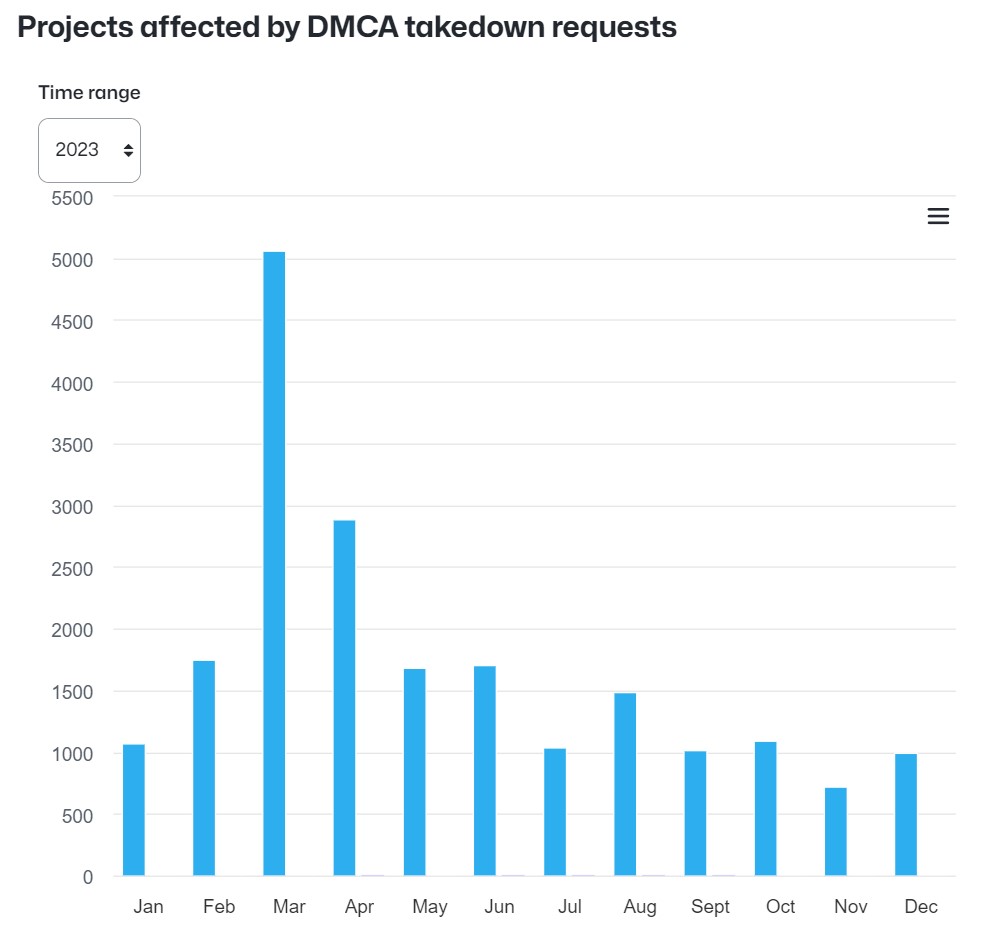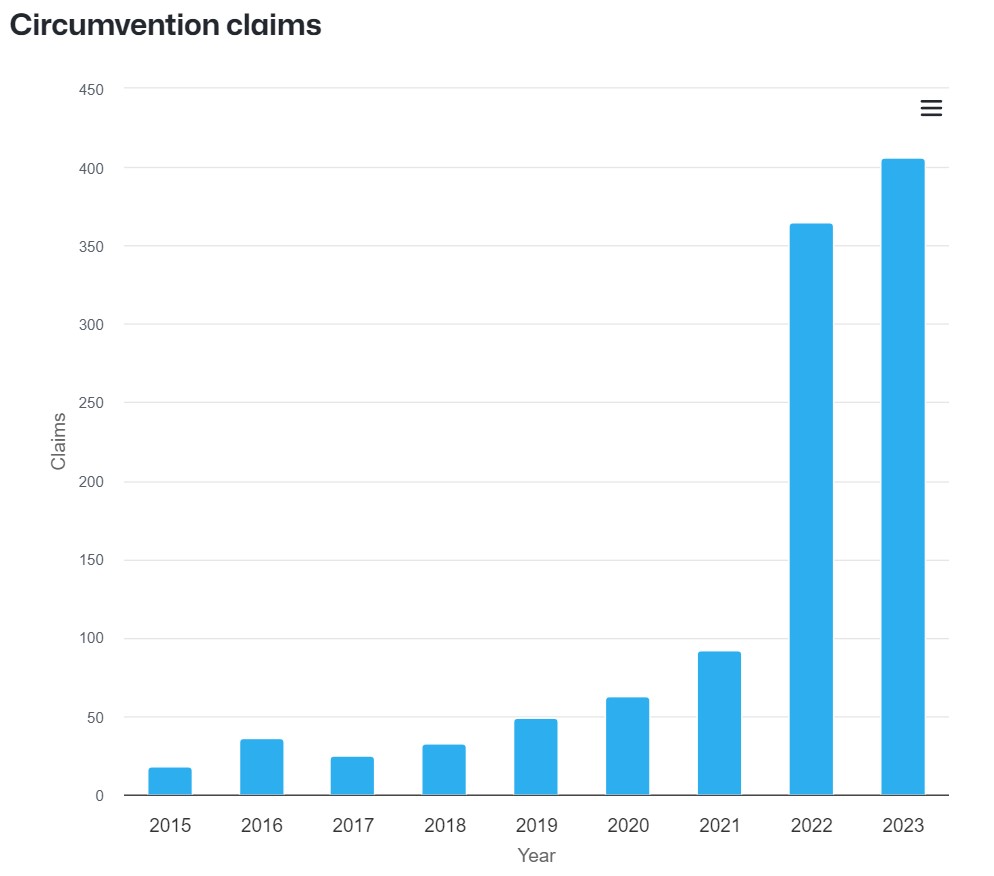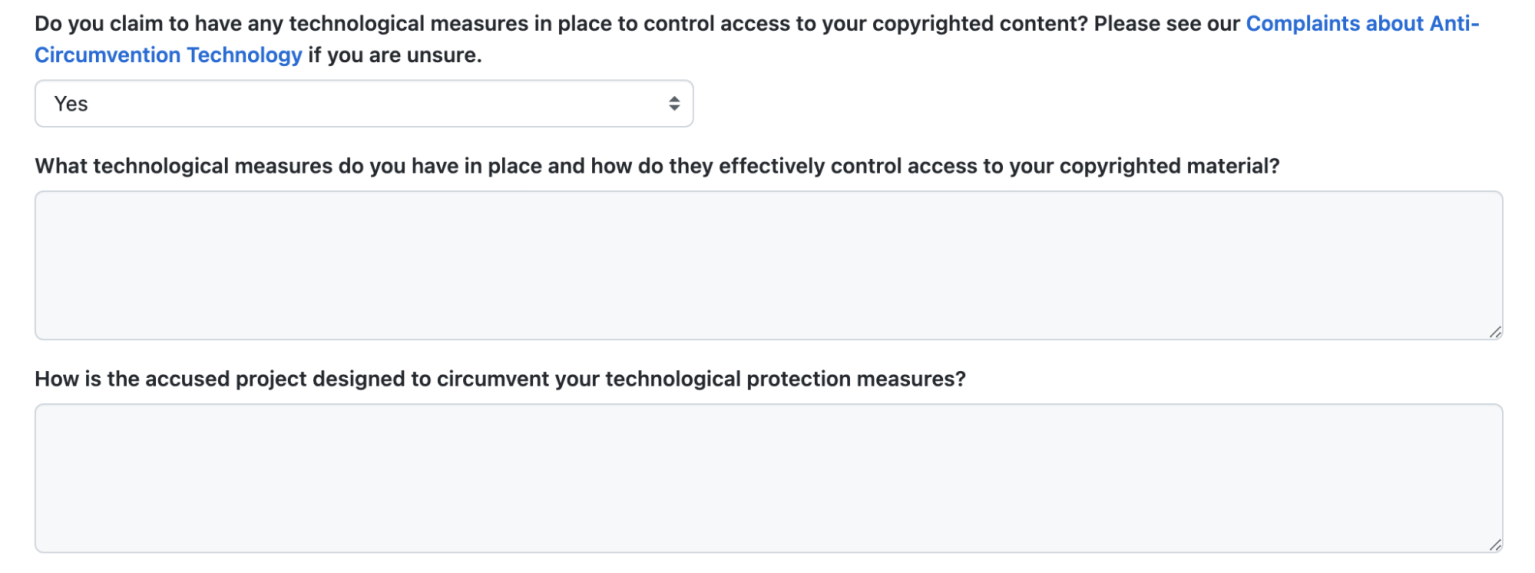 Late last month we
reported
on the latest copyright claim data made available by YouTube. In the first half of 2023, YouTube said it processed
980 million Content ID claims
, a 25% increase compared to a year earlier.
Late last month we
reported
on the latest copyright claim data made available by YouTube. In the first half of 2023, YouTube said it processed
980 million Content ID claims
, a 25% increase compared to a year earlier.
Given the upward trajectory, soon there will be a billion Content ID copyright claims every six months, which rounds to over two billion claims every year. To put that into perspective, if the world currently has five billion-odd internet users, that’s enough for 20% of the entire internet population to receive two copyright complaints per person, every 12 months.
Coincidentally, reports suggest that YouTube has around two billion active users already.
Takedown Notices Must be Reported
The numbers above are enormous but since Content ID-claimed videos stay up, they don’t need to be reported to the European Commission, a requirement for large platforms under the EU’s fledging Digital Services Act.
When Google and major online platforms including TikTok, Facebook, Twitter, Instagram, plus others, restrict or take content offline in response to a takedown notice under
Article 16
, clear information must be sent under
Article 17
to affected users.
Under
Article 24 (5)
, these so-called ‘statements of reasons’ must also be sent to the European Commission. Required information includes the legal basis for the complaint, the legal basis for taking the content down, and a myriad of additional details including a synopsis of considerations preceding takedowns.
To ensure consistency, submitters use an API to file ‘statements of reasons’ (SOR) in the standardized format below.
At the time of writing, just 16 large online platforms are required to supply the EC with this information. When things were just getting warmed up in December 2023, the volume of SOR notices sent by just five submitters had reached 25.8 million per week and when all submitters’ notices were combined, the all-time total topped 710 million.
Things Have Moved On Since Then
It’s almost impossible to reconcile the figures being reported this week with any type of normal thought process. The 710 million figure reported last December was close enough to compare with the population of Europe, 746 million, give or take, or one takedown per person on average.
Over the past 24 hours especially but potentially longer, the EC system has been producing errors in response to our queries. A massive surge in reports filed by Google could be at least partly responsible.
Over 14.4 billion SOR being reported to the Commission was unexpected, to say the least. The ‘statement of reasons’ dashboard appears to show Google taking unprecedented – and as far as we can determine – mostly voluntary action, against billions of listings on its Google Shopping platform and various non-compliant content on Google Play.
Google may have submitted as many as 13.5 billion notices to the Commission thus far. From the few dozen we sampled relating to Google Shopping, many if not all cite terms of service violations committed by advertisers. Notices state that the removal was carried out as part of a voluntary initiative using automatic detection methods. We have seen examples where decisions are described as “Fully Automated” and others as “Not Automated.”
Four typical examples from the sample are presented below. The ‘ground for decision’ is the same in all notices we were able to review:
Content incompatible with terms and conditions
. The explanations vary considerably.
– There was a problem identified with the criteria used in your ads
– One or more of your products have images with promotional text or obstructions
– Google identified that some of your products contain adult-oriented content
– Some of your products have generic images. Use images that clearly show the product
Google statements – click to enlarge

Whether this has anything (or nothing) to do with the antitrust case hanging over Google in Europe is unknown. After the European Commission (EC) found that Google had used its dominant position in search, to gain an unfair market advantage elsewhere, the EC hit Google with a €2.4 billion fine.
Google challenged the EC at the EU Court of Justice but, in late 2021, its case was mostly dismissed and the Court confirmed the €2.4 billion fine. In an opinion released by EU Court of Justice Advocate General Juliane Kokott last month, the EU Court was advised to dismiss Google’s objections and uphold the fine.
When attempting to pull more data on Thursday evening, the EC’s system continued to throw error after error as Google continuously filed new reports. Given the number of notices already on file, not to mention the errors when attempting to pull the maximum 1,000-item reports currently allowed, checking anything like a representative sample is impossible. However, every statement we were able to access followed similar formats to those shown above.
Rightsholders Use DSA to Remove Apps from Google Play
The billions of reports filed by Google include over 208,000 that appear in response to a search for Google Play + Apps, with no specified content category or reason.
When filtering for intellectual property-related issues, over 2,800 reports indicate the removal of apps from Google Play, many listing ‘Copyright’ as the ‘legal ground relied on’.
The pair of notices shown below are typical of those we were able to review, most if not all of which reference technical issues experienced by Google.
Google statements – click to enlarge

In common with many of the others, the notices state that the apps were removed from Google Play in response to a “Notice submitted in accordance with Article 16 DSA” which in broad terms governs a
DMCA-style takedown mechanism
but applicable to a broader range of content.
The EU system improves on the U.S. variant by requiring reasons to be published, but lags behind in a non-insignificant way by disallowing references to content and identification of the notice-sender, which critically undermines investigations into abuse.
The EC’s Statement of Reasons transparency database is available
here
From:
TF
, for the latest news on copyright battles, piracy and more.
 chevron_right
chevron_right


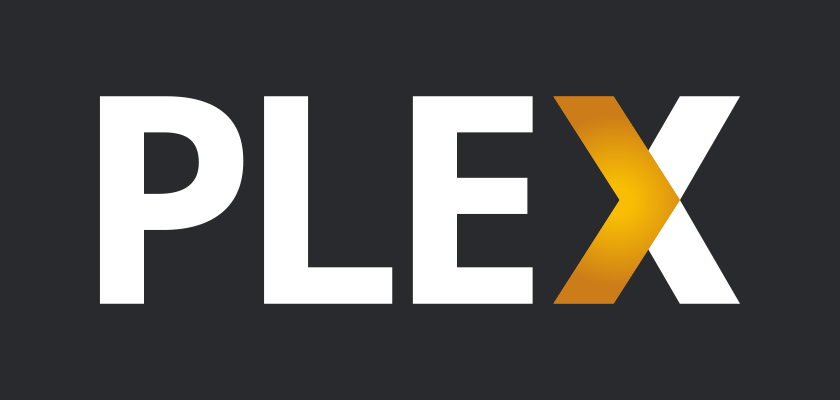 Plex is a multifunctional media software and service that allows users to easily access all of their entertainment in one place.
Plex is a multifunctional media software and service that allows users to easily access all of their entertainment in one place.
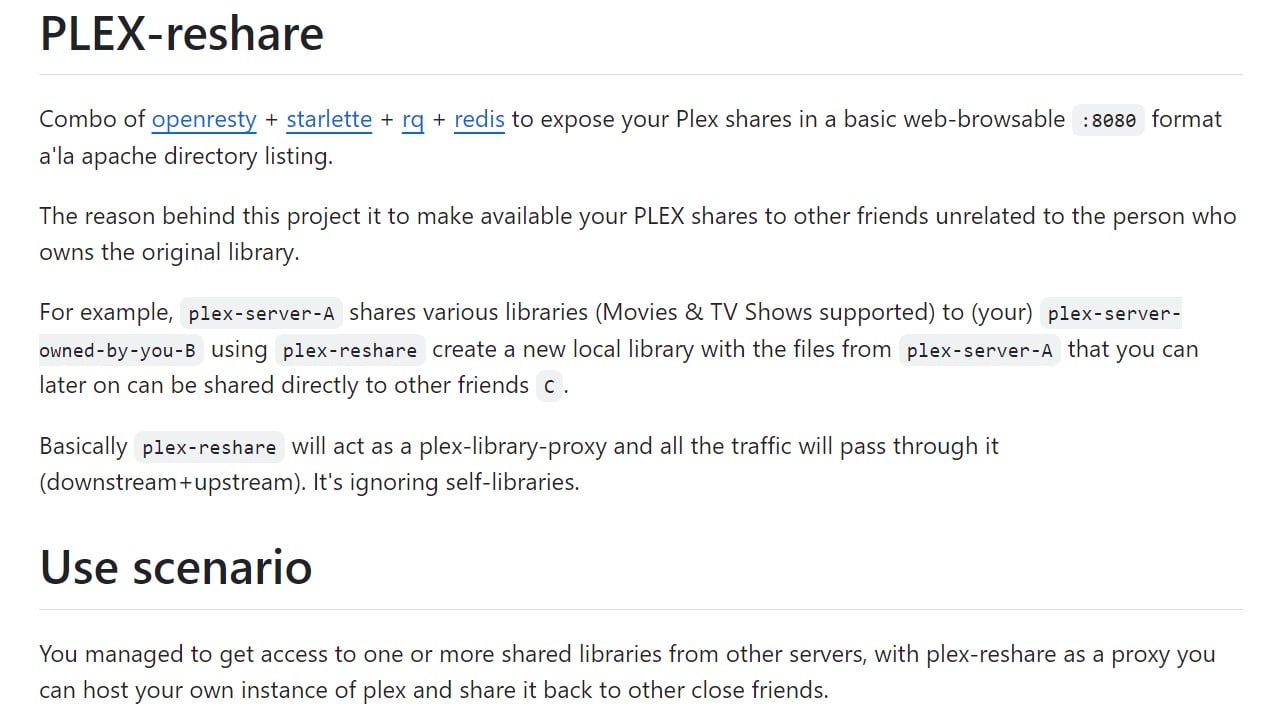
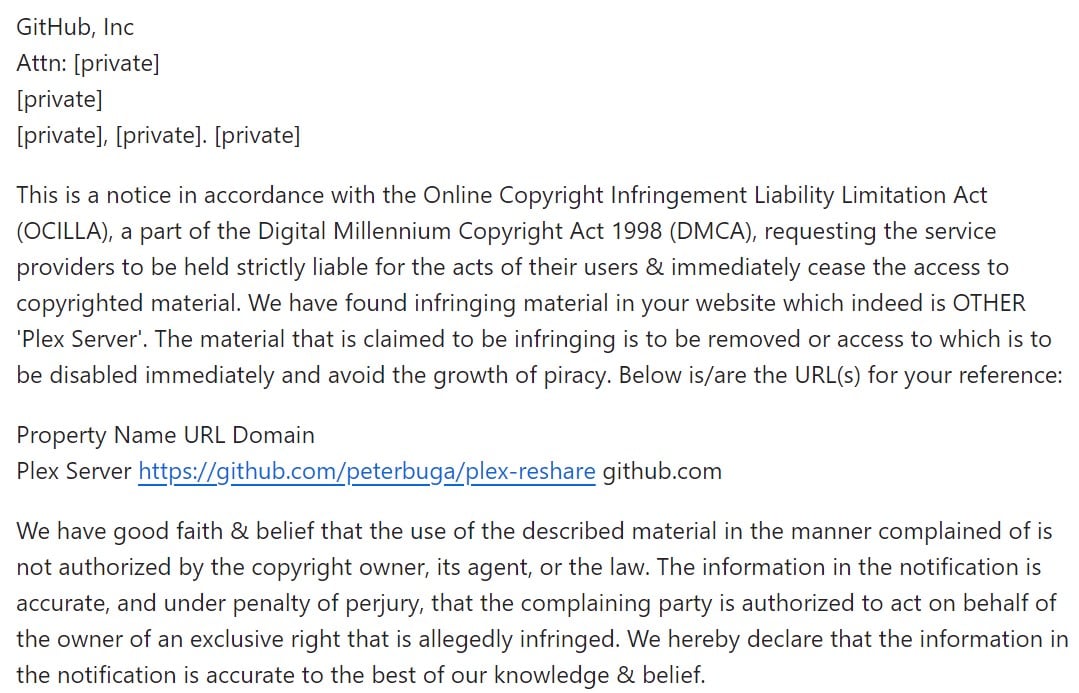




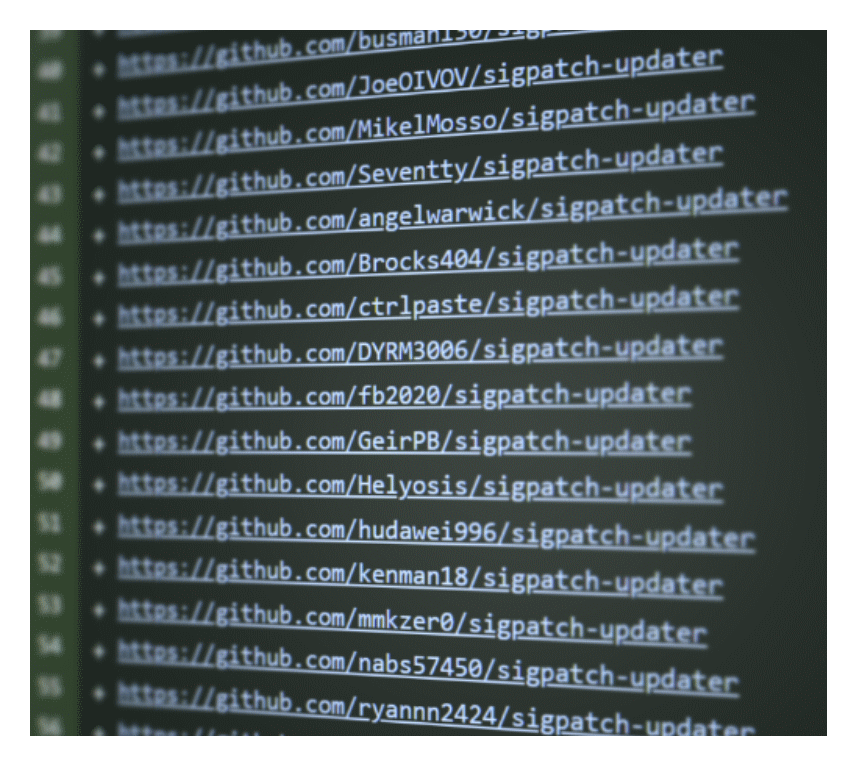

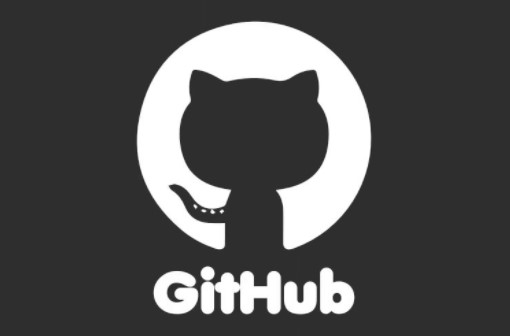 With over 420 million code repositories,
With over 420 million code repositories,
